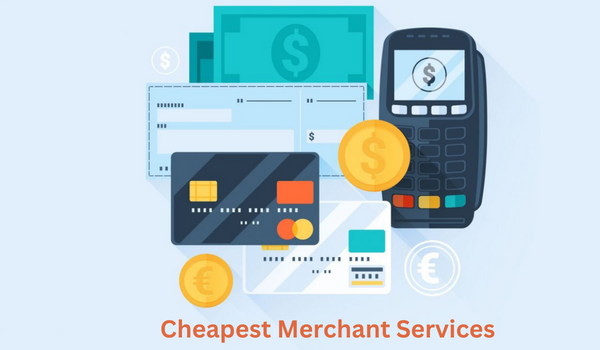
What are e-commerce merchant services?
An e-commerce merchant services in California refers to selling or buying goods or services via the internet using cards or any form of electronic payment.
To process online payments, e-commerce businesses need a merchant account with a payment processor, a bank, or a third-party provider. The merchant account allows the business to accept credit cards and other electronic payments from their customers.
E-commerce merchant services may include other financial services such as fraud detection and prevention, chargeback management, and currency exchange. These services are important for e-commerce businesses to ensure secure and efficient payment processing and to protect themselves from fraudulent activity and chargebacks. For example, Amazon, eBay, and Flipkart are popular e-commerce sites.
Why are e-commerce merchant services important?
E-commerce merchant services are necessary for businesses that sell products or services online. These services provide a variety of features that help businesses process payments and manage their online transactions. Here are some reasons why e-commerce merchant services are important:
- Payment processing: E-commerce merchant services provide businesses with the ability to process credit and debit card payments online. This is essential for businesses that operate in a digital environment and need to accept payments from customers in different parts of the world.
- Security: E-commerce merchant services provide a secure platform for businesses to process payments. They use encryption technology to protect sensitive customer information, such as credit card numbers, from being stolen or intercepted by hackers.
- Fraud prevention: E-commerce merchant services have sophisticated fraud detection tools that help businesses identify and prevent fraudulent transactions. They use machine learning algorithms and other techniques to analyze transaction patterns and detect suspicious activity.
- Payment gateway integration: E-commerce merchant services often include payment gateway integration, which enables businesses to securely transmit payment data between their website and the payment processor.
- Reporting and analytics: E-commerce merchant services provide businesses with tools to monitor and analyze their transactions. This includes reporting sales, refunds, chargebacks, and other financial data.
Overall, e-commerce merchant services are essential for businesses selling their products or services online. They provide a secure and reliable platform for processing payments, preventing fraud, and managing transactions.
How do merchant services work?
A merchant service provider acts as a bridge between your business, your client, and your bank. It facilitates a sale easily through a secure and rather complex process.
- A client presents their payment system, like swiping a card on your point of sale( POS) terminal or entering payment details online.
- Your merchant service provider sends the amount information to your bank.
- Your bank sends the sale to your merchant service provider and the card company, like Visa, Mastercard, etc.
- The card company sends the sale to the issuing bank and requests approval.
- The client’s bank either approves the sale and sends a confirmation to the card company or declines the sale.
- The card company sends the confirmation to your bank.
- Your bank sends the confirmation to your payment terminal.
- Your payment terminal confirms the sale and prints a receipt.
- The client’s card or bank account gets charged with the amount on the receipt.
The benefit of e-commerce merchant services:
E-commerce merchant services provide many benefits to businesses that operate online, including:
- Increased sales: By accepting credit and debit card payments online, businesses can expand their customer base and generate more revenue.
- Improved cash flow: Online payments are typically processed faster than traditional payment methods, which can help businesses improve their cash flow.
- Reduced risk of fraud: E-commerce merchant services often come with fraud detection and prevention measures, which can help protect businesses from fraudulent transactions.
- Convenience: Customers can shop from the comfort of their own homes, and businesses can process payments 24/7, making it more convenient for both parties.
- Increased customer loyalty: By offering a smooth and easy checkout process, businesses can improve customer satisfaction and build customer loyalty.
- Access to customer data: E-commerce merchant services often provide businesses with valuable customer data, such as purchase history and demographic information, which can be used to improve marketing efforts and personalize the customer experience.
Overall, e-commerce merchant services can help businesses increase sales, improve cash flow, reduce fraud risk, and provide a better customer experience.







